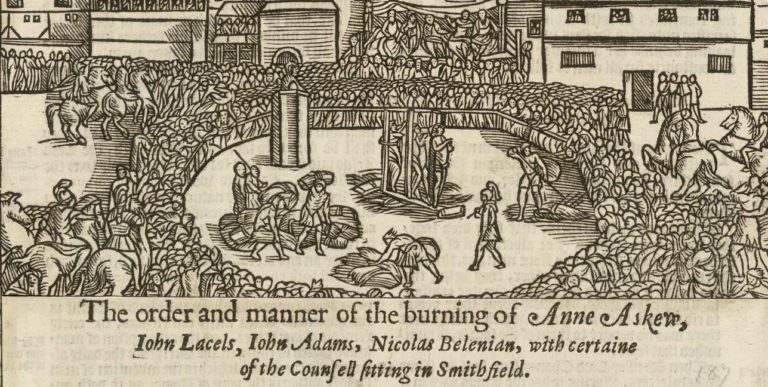In my earlier article, I raised the common experience of a midlife spiritual plateau, and how we might disrupt it. The third group in Jesus’ parable of the soils, in Luke 8:4-15 (and parallels) hits close to home and provides us with some wise insights to restart our spiritual growth:
The seed that fell among thorns stands for those who hear, but as they go on their way they are choked by life’s worries, riches and pleasures, and they do not mature. (verse 14).
The Parable Is Not Just About Evangelism
I used to think this parable was only about how people respond when they first hear God’s word. Some reject it, some embrace it briefly, and some truly believe. Reading it this way provides a level of comfort: Jesus tells us to expect different responses. The takeaway? Faithfully scatter the seed and trust God with the soil. That’s true. But there’s more here. On closer reading, Jesus is also saying something for us as lifelong followers of Christ. For this parable reveals long-term threats to spiritual maturity. And so it speaks powerfully into seasons of spiritual plateau.
Notice the shift in pacing in Jesus’ parable of the soils. The first two soils involve short-term reactions: the seed is snatched or the plant is scorched quickly. But the third soil is different: its plant grows. Slowly. Alongside the thorns. Until it’s eventually choked and fails to mature. As commentator Alfred Plummer puts it:
The choking is not a sudden process, like the trampling and devouring; nor a rapid process, like the withering: it takes time. It is as they go on their way through life and before they have reached the goal, that the choking of the good growth takes place. Therefore they never do reach the goal.[1]
Darrell Bock adds:
The parable looks at a career of response, as is clear when one considers that the good soil brings up various levels of fruit. The assessment is built on moments, to be sure, but it requires a life of response to consider what one’s soul looks like relative to a slowly developing crop. A plant does not sprout forth overnight, nor does the harvest of the heart.[2]
This parable isn’t just a snapshot, it’s a slow-motion video of spiritual drift. It forces us to ask what thorns are growing in our lives, threatening to choke our maturity in Christ. Because identifying these subtle but powerful distractions is a key step toward disrupting the plateau.
Weeding Out Our Worries
What keeps you awake at night? Work stress? Family pressures? That discouraging comment that still stings? Scripture does have a category for “faithful anxiety” using the same word we find in Luke 8 (In Greek, μέριμνα. See 1 Cor 7:32–34; 2 Cor 11:28).[3] This “faithful anxiety” is a single-minded concern for the things of the Lord rather than the things of the world. It is seen in a pastor’s concern for the flock (1 Pet 1:2–4). This type of anxiety is good and proper in a follower of Jesus. But there is a way of worrying, even about the Lord’s affairs, that chokes our spiritual growth. This is the kind of worry we need to be ready to weed out.
Worry has a way of swirling through our minds. It clouds our view of God’s sovereignty and leaves us feeling like we’re carrying everything alone. But we’re not meant to. Scripture doesn’t tell us to suppress our worries or manage them on our own, it tells us to “Cast all your anxiety on him because he cares for you” (1 Pet 5:7). Jesus invites us in the Sermon on the Mount:
Look at the birds of the air; they do not sow or reap or store away in barns, and yet your heavenly Father feeds them. Are you not much more valuable than they? … So do not worry, saying, ‘What shall we eat?’ or ‘What shall we drink?’ or ‘What shall we wear?’ For the pagans run after all these things, and your heavenly Father knows that you need them. But seek first his kingdom and his righteousness, and all these things will be given to you as well. (Matthew 6:26, 31–33)
When we hold onto our worries they slowly take over, cluttering our thoughts, distracting our hearts, and choking the word’s fruitfulness in us. But when we turn to him? He gives us a peace the world can’t:
Do not be anxious about anything, but in every situation, by prayer and petition, with thanksgiving, present your requests to God. And the peace of God, which transcends all understanding, will guard your hearts and your minds in Christ Jesus. (Philippians 4:6–7)
There’s no quick fix. But every time we pray, trust, and persevere, God loosens worry’s grip. And slowly, over time, the word begins to grow again.
Why Do We Stop Weeding?
For those of us who’ve followed Jesus for years, we know all of these verses well, so why do worries still choke our spiritual growth? Midlife often brings heavy burdens: ageing parents, growing children, increasing financial and work responsibilities. But I suspect there’s something else going on, too: ingrained habits that dull our engagement with God’s word.
It could be that we’re not soaking in God’s word. A few hours a week—church, Bible study, skimming a few verses—might feel like enough. But Psalm 1 pictures the flourishing believer as one who delights in God’s word and meditates on it day and night (v. 2).
And it could be that when we do read and hear God’s word, we’re not storing it in our hearts. What sets fruitful soil apart? The word is retained (Lk 8:15). It’s memorised, meditated on, held onto. When we hide God’s promises deep in our hearts this shapes our reactions, not just our intentions. It helps us, including in our weak spots, like worry.
Maybe we’re simply not doing what the word says. We know the verses, but don’t act on them. Instead of casting our cares on God, we stew or scroll or try to fix things by ourselves. If we’re not hearing, holding onto, and obeying God’s word, our worries will quietly overtake us like lantana—invasive, and choking.
Pursuing Spiritual Growth
But it doesn’t have to be this way. James exhorts us:
Do not merely listen to the word, and so deceive yourselves. Do what it says… whoever looks intently into the perfect law that gives freedom, and continues in it… they will be blessed in what they do. (James 1: 22–25)
Even when we find ourselves in a midlife spiritual plateau we can, by God’s grace, receive his word and apply it to the worries of life and ministry that overwhelm us. And so we might find ourselves in a new season of spiritual growth:
the seed on good soil stands for those with a noble and good heart, who hear the word, retain it, and by persevering produce a crop. (Luke 8:15)
An earlier version of this article was originally posted on Jo’s Substack.
[1] A. Plummer, The International Critical Commentary: St Luke (1901: Edinburgh, T & T Clark), p. 221.
[2] D. L. Bock, The NIV Application Commentary: Luke, (1996: Grand Rapids, Zondervan), p. 232.
[3] M. McKinley, Luke 1-12 For You (2016: The Good Book Company), p. 189.














